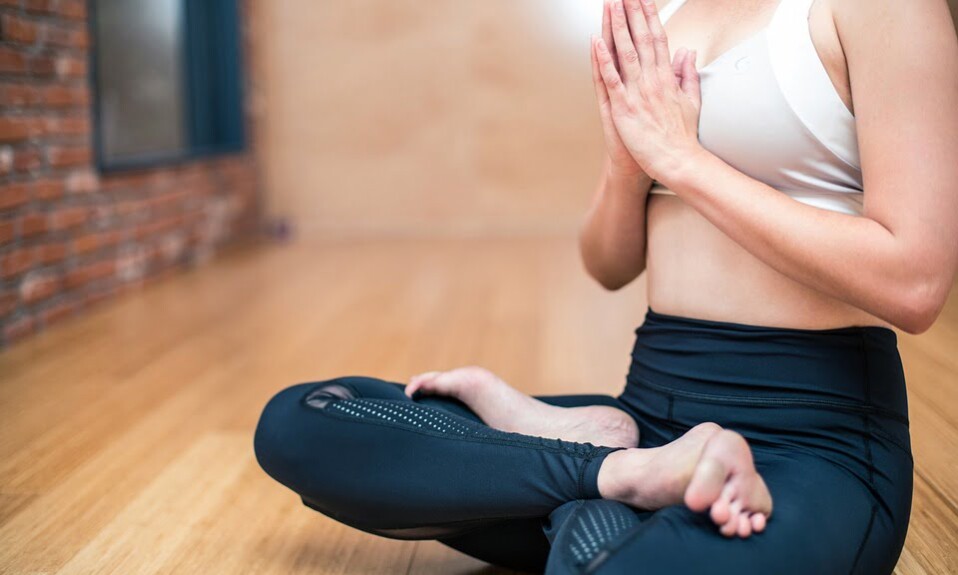[ad_1]
Tattoos are a popular form of self-expression, but if you have them and are into exercise, you may be wondering how they could affect your workouts and vice versa. In this article, we explore the relationship between tattoos and exercise to help you understand what you need to know.
Can I Exercise After Getting a Tattoo?
It’s generally recommended to avoid exercising for 24-48 hours after getting a tattoo. This is because the process of getting a tattoo can cause trauma to the skin, and exercising too soon afterwards can increase the risk of infection and affect the healing process. Sweat and friction from clothing can also irritate the tattooed area. It’s important to follow the aftercare instructions provided by your tattoo artist to ensure proper healing.
How Do Tattoos Affect the Skin During Exercise?
Once your tattoo has fully healed, it’s generally safe to exercise as normal. However, it’s important to be mindful of how tattoos can affect the skin during exercise. Tattoos can alter the skin’s ability to sweat, which can affect the body’s natural cooling system. Additionally, certain movements and exercises that cause stretching or compression of the skin may cause discomfort in the tattooed area. It’s important to listen to your body and make adjustments as needed.
Should I Avoid Certain Types of Exercise with Tattoos?
While there aren’t specific types of exercise that are off-limits for individuals with tattoos, it’s important to be mindful of how certain types of exercise can impact your tattoos. For example, high-impact activities such as running or contact sports may cause excessive movement and impact to the skin, which could potentially affect the appearance of the tattoo over time. Additionally, activities that involve exposure to the sun, such as outdoor cycling or swimming, can cause fading and discoloration of tattoos. It’s important to protect your tattoos with sunscreen and proper clothing.
What Should I Consider Before Exercising with a New Tattoo?
Before engaging in physical activity with a new tattoo, it’s important to assess the location and size of the tattoo, as well as the type of exercise you plan to do. If your tattoo is in a location that’s prone to excessive movement or friction during certain exercises, you may want to wait until it’s fully healed before resuming those activities. It’s also important to keep the tattooed area clean and dry, and to avoid tight or restrictive clothing that could irritate the skin.
How Can I Protect My Tattoos During Exercise?
To protect your tattoos during exercise, it’s important to take certain precautions. This includes wearing loose-fitting, breathable clothing to minimize friction and irritation, and applying a thin layer of unscented, hypoallergenic moisturizer to keep the skin hydrated. It’s also important to clean the tattooed area after exercising to remove sweat and bacteria that could potentially lead to infection. In addition, protecting your tattoos from the sun with clothing and sunscreen can help prevent fading and discoloration.
Conclusion
Overall, it’s important to be mindful of how tattoos can affect your exercise routine and vice versa. By following proper aftercare instructions and being aware of how certain types of exercise can impact your tattoos, you can continue to enjoy both your tattoos and your workouts without any major issues.
FAQs
Can I exercise before getting a tattoo?
It’s generally best to avoid exercising before getting a tattoo, as excessive sweating and exertion can affect the quality of the tattooing process and the healing of the skin.
Do tattoos affect muscle growth?
Tattoos do not directly affect muscle growth. However, if a tattoo is located in a larger muscle group, it may affect the appearance of muscle definition in that area.
Should I avoid weightlifting with a new tattoo?
While weightlifting with a new tattoo is generally safe once it’s fully healed, it’s important to be mindful of the location and size of the tattoo, and to avoid any movements that could put excessive strain on the tattooed area.
Can I go swimming with a new tattoo?
It’s best to avoid swimming with a new tattoo until it’s fully healed, as exposure to chlorine, saltwater, and bacteria in swimming pools or natural bodies of water can increase the risk of infection.
Do certain colors of tattoos fade faster with exercise?
While all tattoos will fade over time, certain colors such as yellow and red may be more prone to fading with excessive sun exposure from outdoor activities.
[ad_2]





